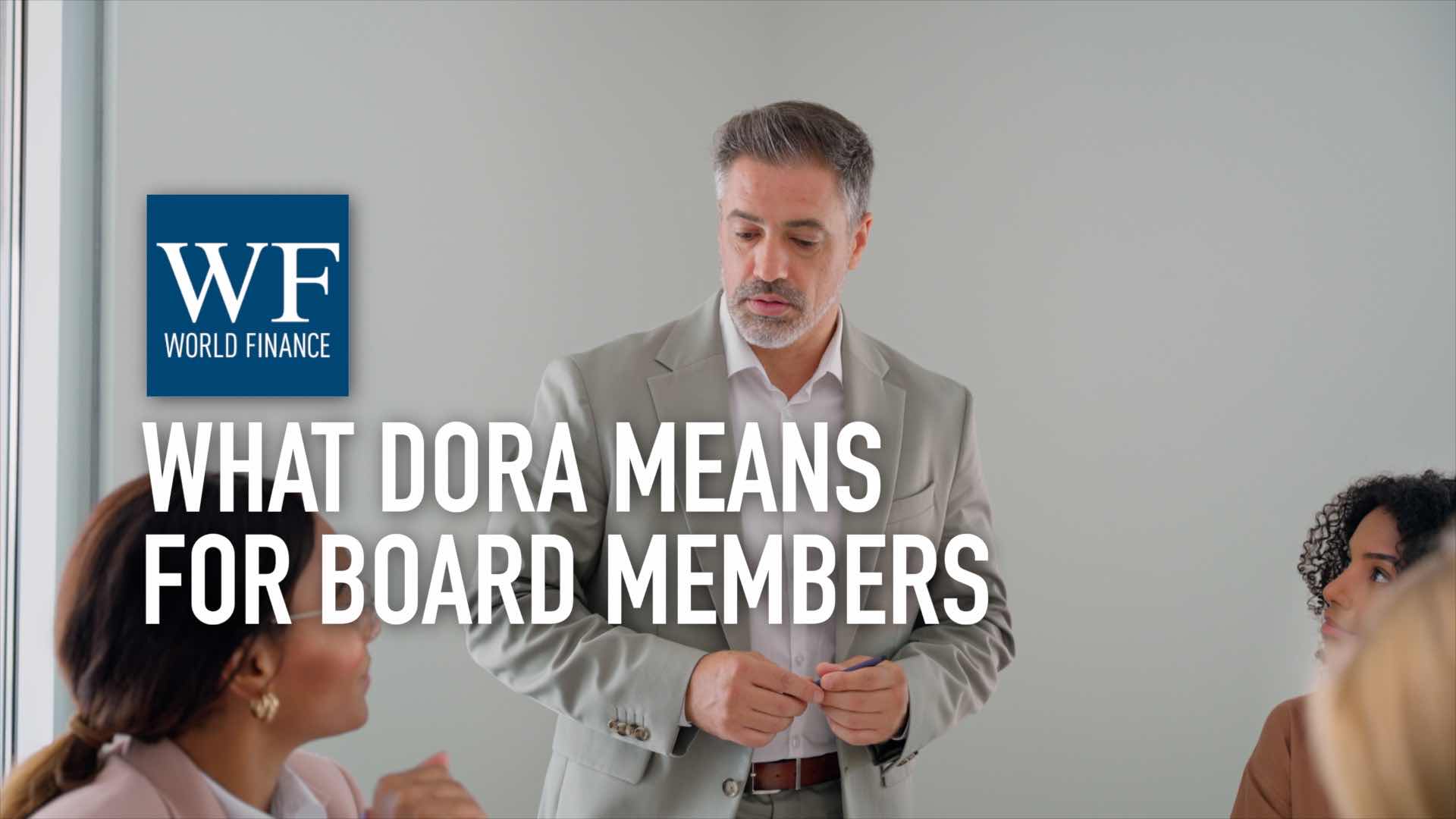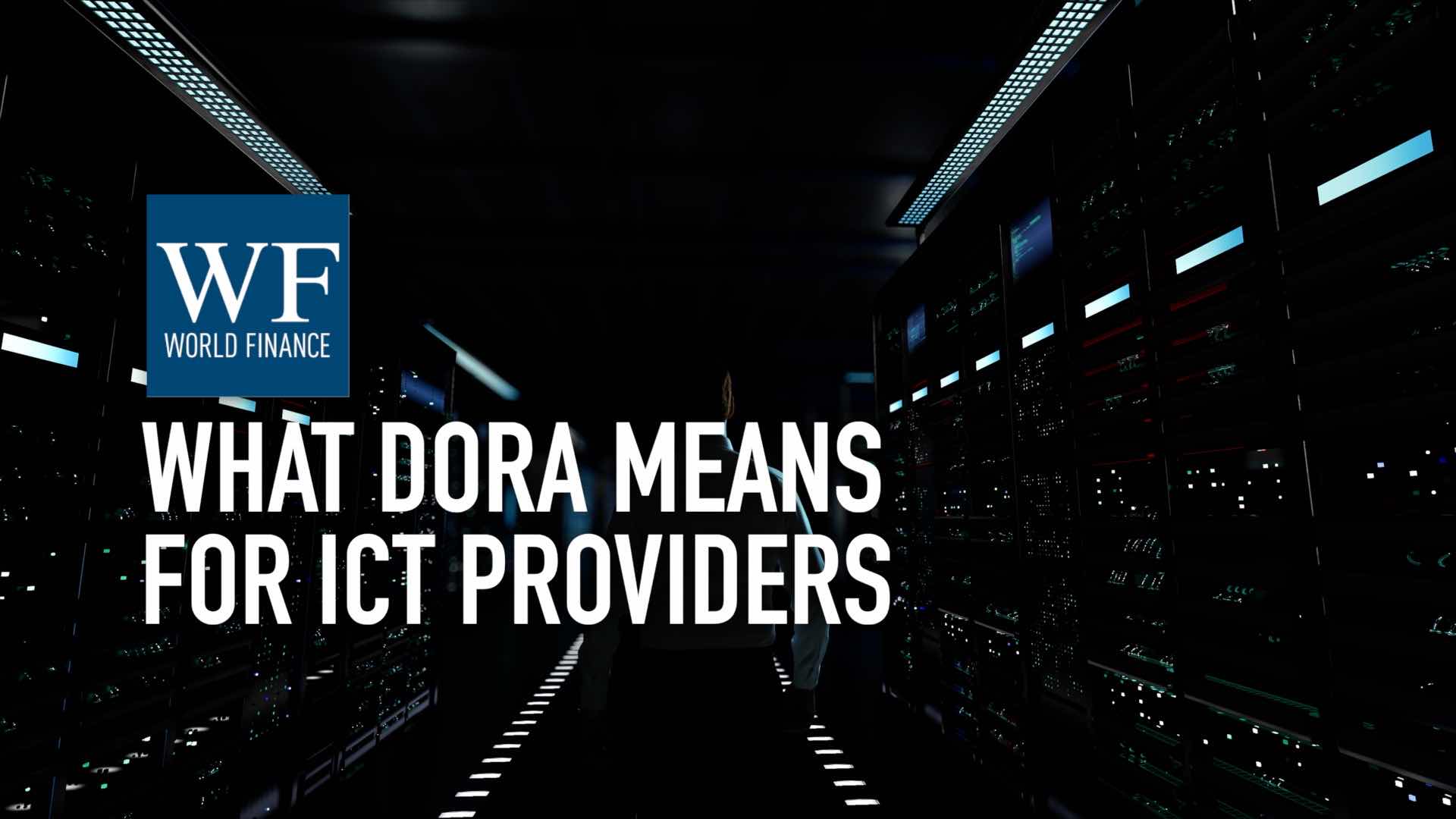How is money laundering hitting markets?
With black markets on the up, so is money laundering. Dennis Cox, author of the Handbook of Anti-Money Laundering, gives his insights on how financial markets are hit
Related:
Transcript
As one of the most prosperous industries at present, money laundering is one of the most aggressive growth. Here, Dennis Cox, author of the Handbook of Anti-Money Laundering, explains to Jenny Hammond how the industry has taken off – and governments are worried
World Finance: Dennis, money laundering – where are the trouble spots?
Dennis Cox: As crime goes up around the world then clearly people want to try to turn those funds into money they can use. That means everywhere is a trouble spot. The main centres of financial crime deterrents become the UK, America because we’re the centre of the financial markets. So we have to be particularly vigilant in the major markets to try to look out for these kinds of funds.
World Finance: Well you wrote that money laundering is one of the few global growth industries that seem to be prospering at present. How is this industry structured and what is the process?
Dennis Cox: Every time you have something stolen from you or you have some trying to extract money from you in some way, they are going to try and place it into a source so they can actually get true value from it. As crime goes up, and we were discussing things like terrorist financing in the book, but obviously drug trafficking, human trafficking and other types of crime – they’re all growth industries, with regret.
Money laundering tends to stay ahead of the regulations
And of course if they’re growth industries then by consequence money laundering itself becomes a growth industry. Very much organised crime – a lot of organised crime is involved in this kind of process. Although there is a difference between what I would call amateur money laundering, which when the single person who has just stolen from a flat is trying to sell a TV or something. As opposed to professional money laundering, which is more attached to the organised criminals who are doing drug trafficking, human trafficking, terrorist financing and those kinds of matters.
World Finance: So how profitable an industry would you say it is for those that are doing the dirty washing?
Dennis Cox: The person who is trying to get the proceeds so they can use them legitimately, is willing to take a discount on the funds, which is sometimes quite substantial. They know that they want clean funds that they can use, and they’re willing to pay for that privilege.
That means that there’s a lot of money to be made – there’s a lot of funds that can then be moved around in those ways. And that creates the advantage, that creates the preference – and that means that we actually have new things coming through all time. Money laundering tends to stay ahead of the regulations – the challenge with anything in this space is trying to stay ahead of the money launders.
World Finance: How are governments cracking down and are there any traps legitimate businesses can fall into unwittingly?
Dennis Cox: Increasingly there are new sets of rules coming in in terms of the way you have to verify your staff, including people like contractors, to see that they are legitimate – and that’s focusing particularly on the financial services industry. One of the key areas has been within the taxation market, and thinking about taxation – if you under pay tax then clearly that is ill-gotten gains from the evasion of taxation. And where this line comes between avoidance and evasion is clearly a very difficult line to tread.
World Finance: How do international standards differ and what challenges do these pose?
Dennis Cox: We do have some global standards primarily promulgated by the financial actions task force, although there are other principles around like the Wiseberg principles and we have the European directives. But everyone seems to want to have there own derogation, and then of course you have to align it to the laws of the country.
And so you walk into things on data privacy for example which can make life quite difficult sometimes – what am I allowed to connect, what data and I allowed to hold – and once you start to have restrictions on the data then it makes it much harder to identify and really identify either the corporate or the person.
World Finance: Well considering that illegal activity is now counted towards GDP, surely cracking down is actually going to hit economies?
Dennis Cox: Does money laundering create employment? I’m not convinced it does. Does it add value to society? I’m not convinced it does that either. So the elimination of it terms of improving economy, making it feel like a good place for people to do business, where you can do business safely – I think that creates greater growth than anything we could possible lose by some loss of numbers on a fictitious GDP figure.
[C]hild pornography and child exploitation are seen as being areas where quite small payments may turn up
World Finance: Well there is a general understanding that the authorities are more interested in large amounts of money. So when it comes to small amounts, do these slip through the net?
Dennis Cox: I think they do. And this is what we call something like the plumber. Is it plausible that your plumber might take cash, and is it plausible that your plumber might then not disclose all of that cash to the tax authorities? And is that exciting, in terms if finding organised crime? Well the answer is – no it’s not. So clearly at that end it’s to an extent allowable. Now we in the UK have set up the rules of zero de minimis – that’s because child pornography and child exploitation are seen as being areas where quite small payments may turn up.
World Finance: So how easy is it to prosecute and how many people get away with it in reality?
Dennis Cox: The number of prosecutions is not high enough, and I think everyone would agree with that. There’s a lot of work done in terms of producing suspicious activity reports and sending them to the relevant authorities. But in many countries – there are almost no prosecutions. Here, we are slightly better within the UK market – the US is doing slightly better too. But from other countries you find hardly any prosecutions at all. It doesn’t mean there isn’t money laundering – it just means it isn’t prosecuted.

 What the Digital Operational Resilience Act means for board members and CEOs
What the Digital Operational Resilience Act means for board members and CEOs What the Digital Operational Resilience Act means for third party ICT providers
What the Digital Operational Resilience Act means for third party ICT providers
